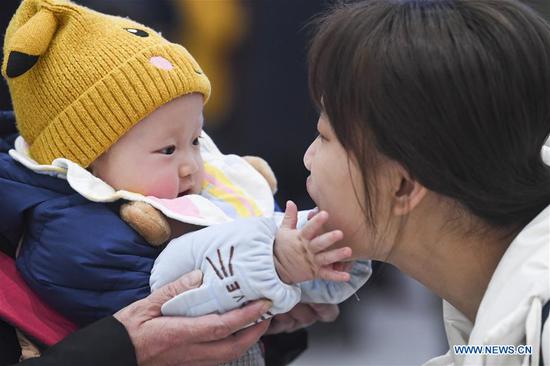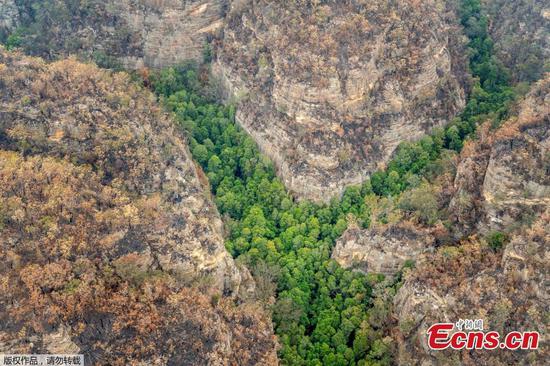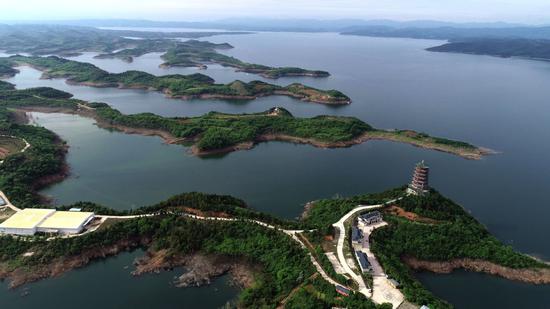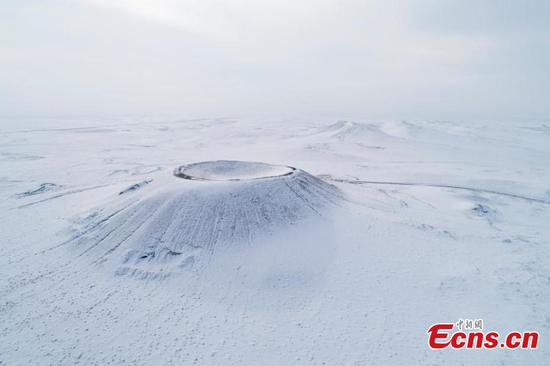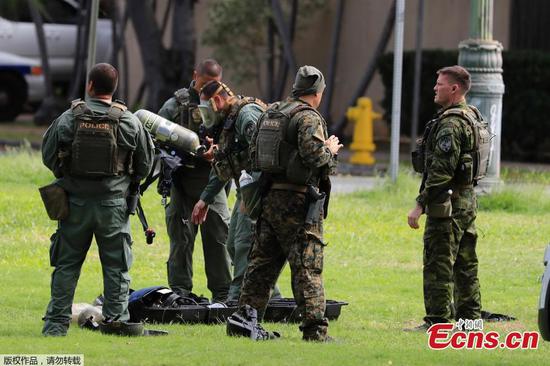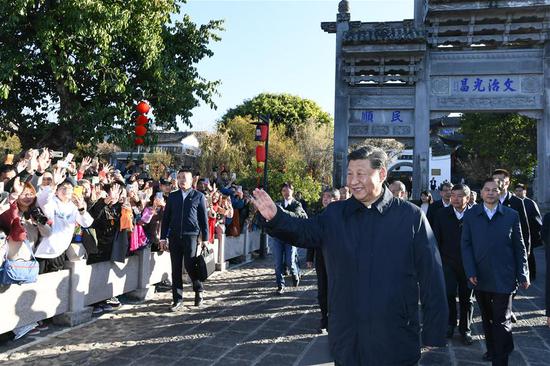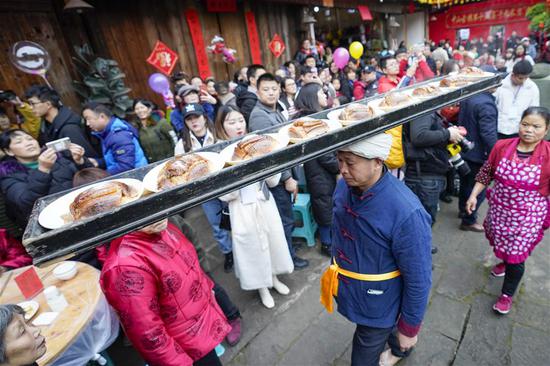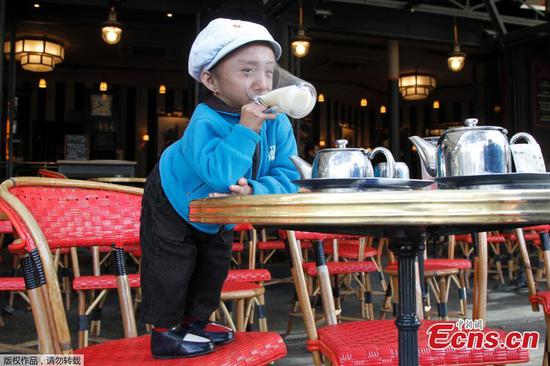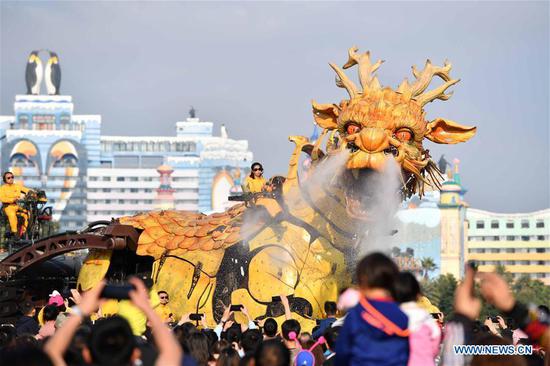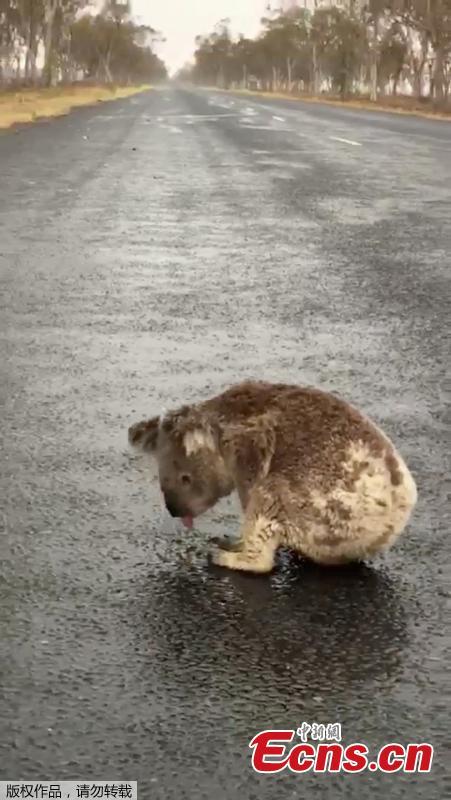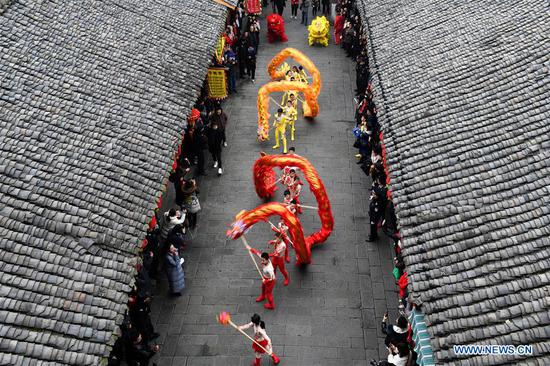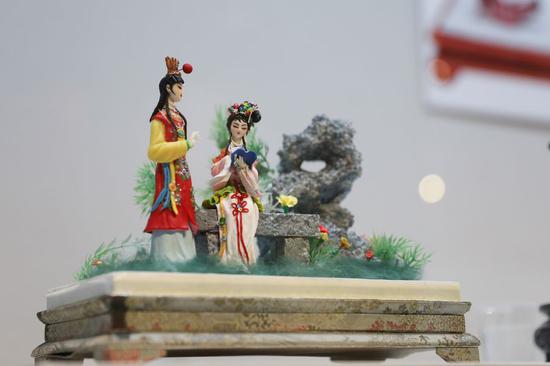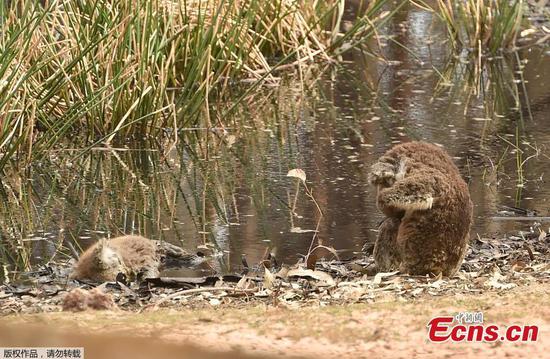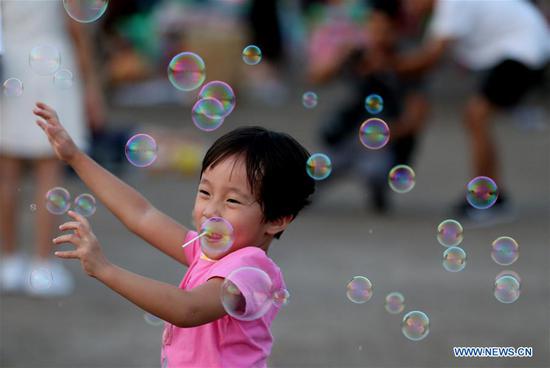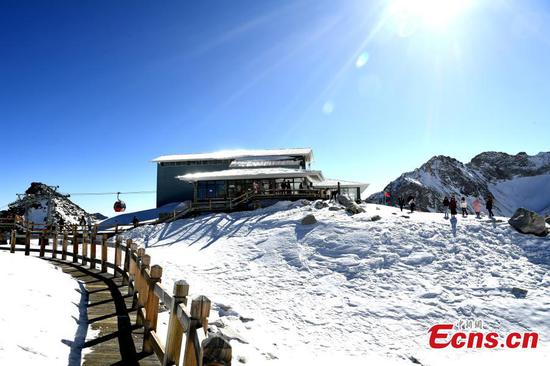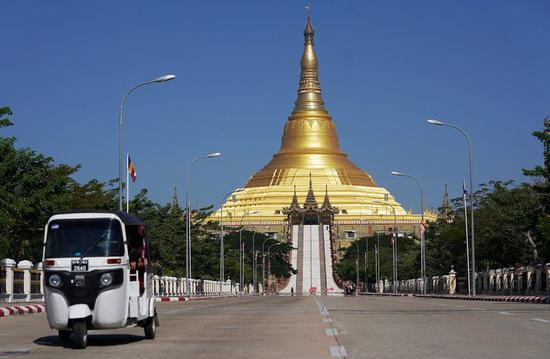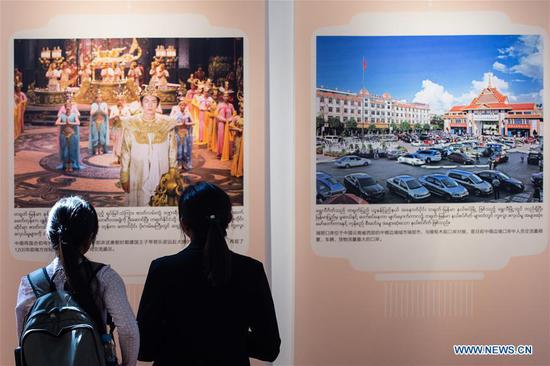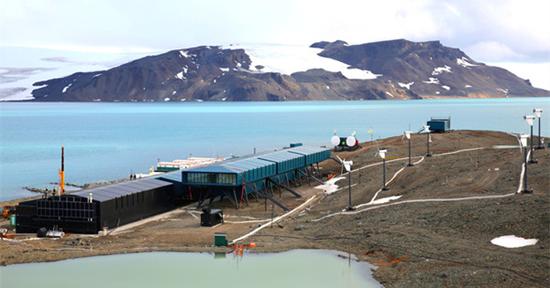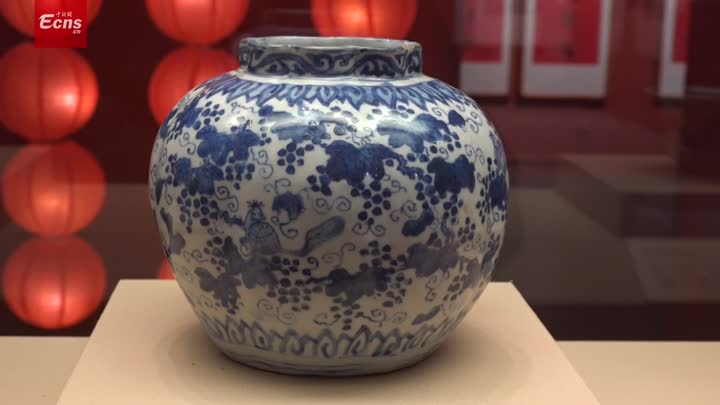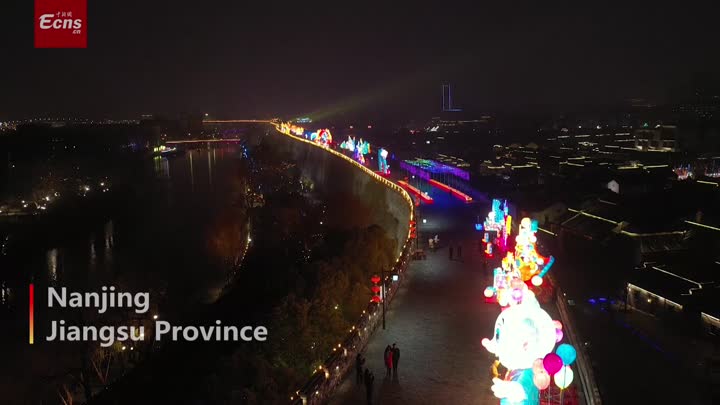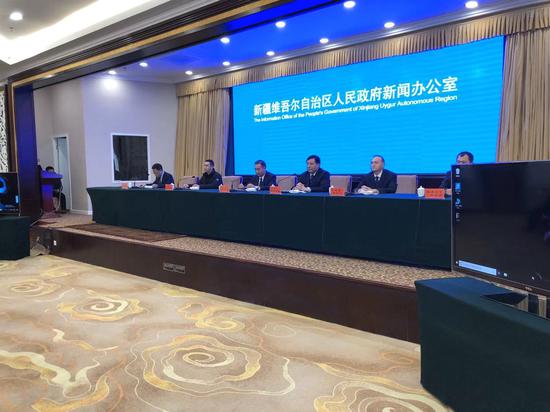
At the press conference on education in Xinjiang, January 20, 2020. (Photo/CGTN)
Q: It is understood that Xinjiang has promoted the teaching of a standard spoken and written language. What is your consideration behind this? And what achievements have you got?
China's law stipulates that all Chinese citizens have the right to learn and use standard Chinese language, and the state should provide them the conditions to do so, said Enwer Ablimit, the chief of Kashgar Bureau of Education.
Ablimit said that learning the country's common language facilitates communication and integration of locals into modern society. He refuted U.S. media reports alleging that the promotion of Chinese language is to "replace Uygur with Chinese."
Thanks to these efforts by Xinjiang's schools, many students are able to help their parents communicate with the outside world, thus removing the language barrier, Ablimit added.
Xinjiang also protects the right of the ethnic minority students to learn their own languages, as teaching of ethnic minority languages, including Uygur, Kazak, Kirgiz, Mongol, Xibe, is provided in primary and middle schools, the education official said.
Q: It is reported that four little children drowned and were burned respectively due to the absence of their parents who were "detained" in the "re-education camps" by local government. Is this true?
Rishat Musajan, mayor of Hotan City, said these are fabricated stories. Journalists had visited the related families and found out the facts.
He said the first boy's name was Rehemutula Xirewak and his parents were never been detained. At the time the boy drowned, his father was renovating their own house and his mother was out. The boy was playing by himself wandered away and he later accidentally fell into the water and drowned.
Regarding the second boy, he said the boy was lost after he was left alone by his parents, who were not detained at the time. After finding out that their son was lost, they called the police immediately and the local police organized the villagers to find the boy. His body was eventually found under the ice of a water channel. It turned out that the boy fell into water while playing alone.
The third girl burned her face accidentally after the boiling water in a kettle poured onto her face when she was playing in the room and knocked the stove. After learning of the incident, the local government officials applied for special assistance funding for the girl's family and local villagers also raised money for her medical treatment. The girl has returned to school after treatment.
The story of the forth boy, according to the mayor, is "totally made up out of thin air." He told reporters that there is no such thing as a boy who drowned in the Yarkant River in August 2018.
Q: It is reported that Meryem Sultan, who was granted the Lin Zhao Memorial Award in 2019, released information about her mother's detention and her grandmother's death in a vocational education and training center. Is the information true?
Spokesperson Elijan Anayit said Meryem Sultan has constantly released false information concerning Xinjiang on her social media since 2017. Her Uygur name is Maieryanmu Sulitang, he added.
The spokesperson said Chinese journalists had interviewed Maieryanmu's mother, Ayigul Sulitang, who said that she has been living a normal life and Maieryanmu's grandmother, Kanjihan Apiz, had never been detained in any vocational education and training center. She died of illness on January 27, 2019.
The mother also said she contacted her daughter many times, which contradicts Maieryanmu's claim on social media that she has lost contact with her family for more than 1,000 days. The mother now hopes that her daughter will not be deluded and used by "evil forces," by which she means the organizations such as the World Uyghur Congress and the East Turkistan Islamic Movement.
The spokesperson also mentioned the "lost contact" activities on Facebook, through which some overseas native people of Xinjiang posted notices looking for their missing relatives and friends. He clarified that the so-called "missing persons" are actually living a normal and peaceful life in Xinjiang.









